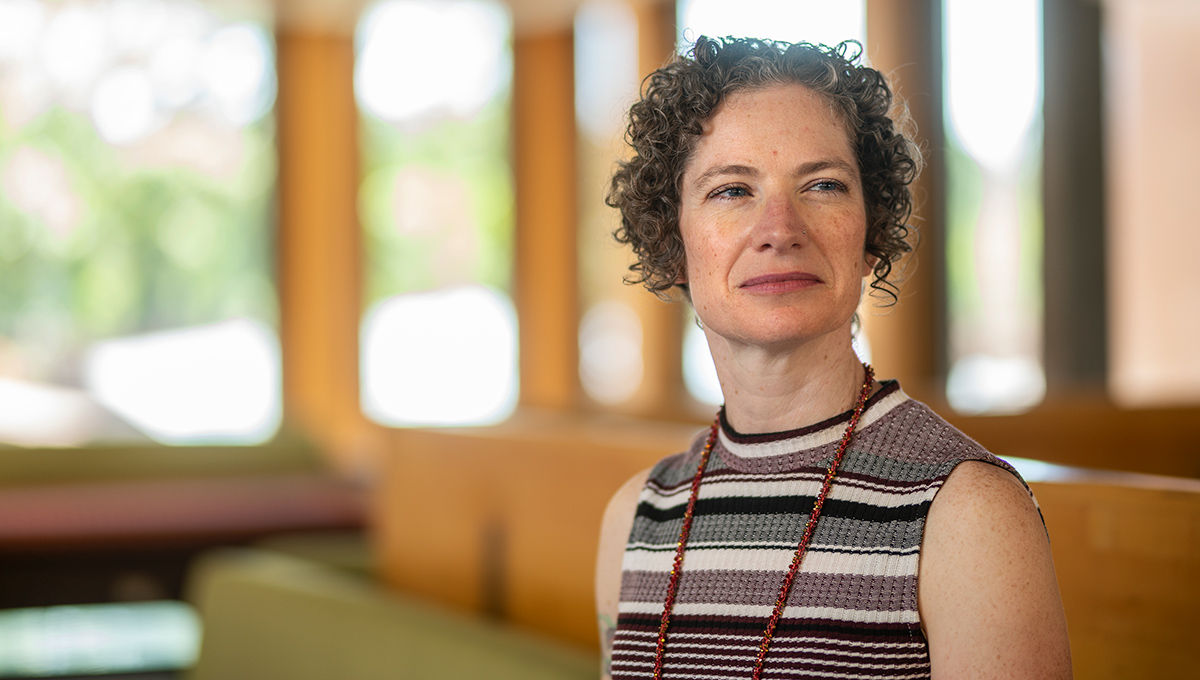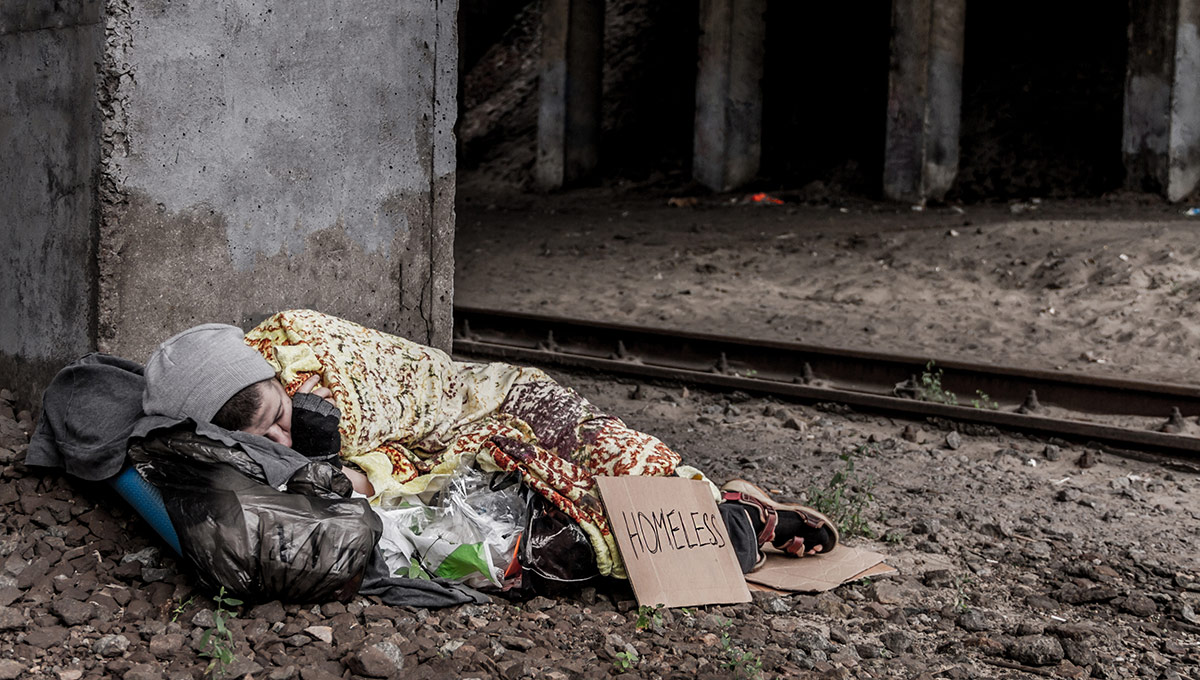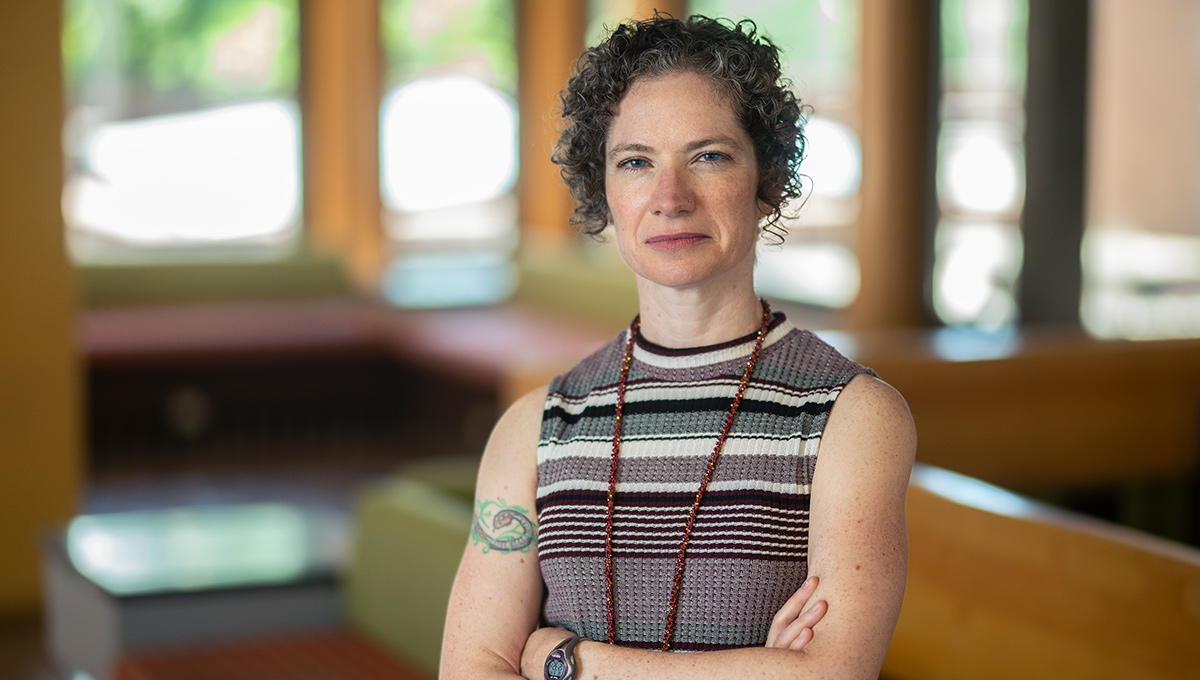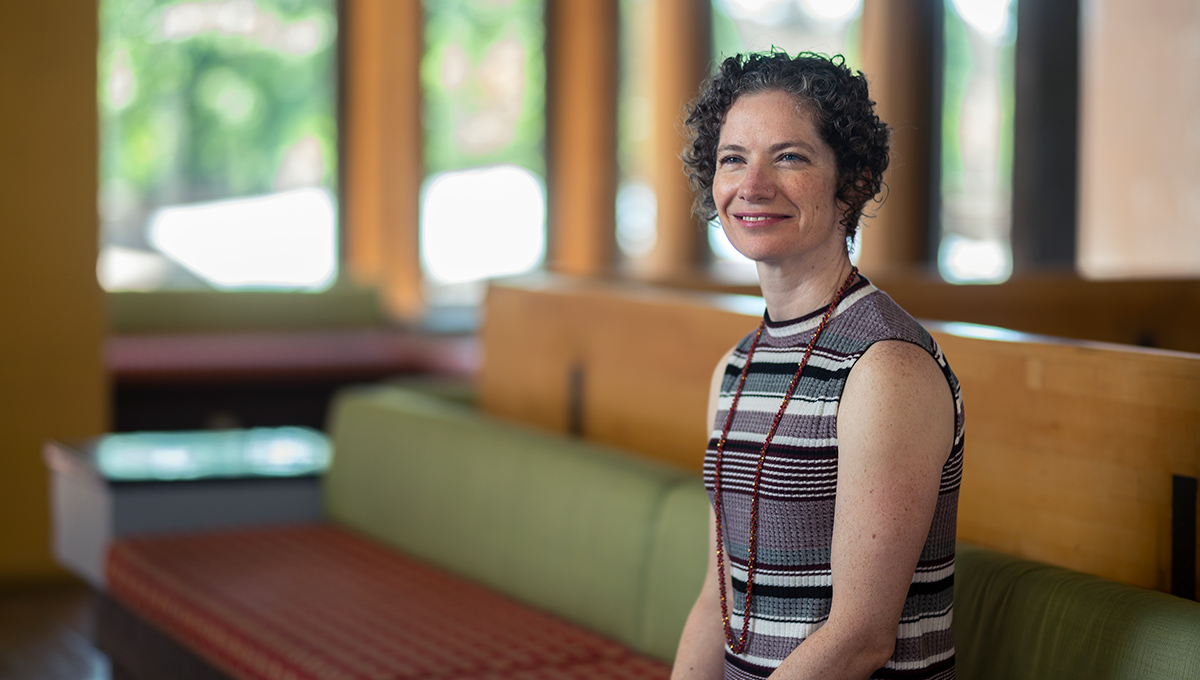By Leah Coppella
Photos by Chris Roussakis
Jacqueline Kennelly doesn’t want to just curb homelessness that plagues up to 40,000 Canadian youths each year and 6,000 on any given night. She wants to eradicate it.
Kennelly, a professor in Carleton University’s Department of Sociology and Anthropology, is working with the Networks of Centres of Excellence (NCE) to create Making the Shift: Youth Homelessness Social Innovation Lab, an $18-million, five-year project.

Prof. Jacqueline Kennelly
The lab will have a real-world impact on young people who are homeless or at risk of homelessness across Canada by generating evidence-based models through research on prevention and supports that work best for at-risk communities.
The lab also hopes to partner with municipal, provincial and federal governments to shift from emergency responses to a planned approach that invests in preventing and ending homelessness.
Youth homelessness was not the field where Kennelly thought she’d end up. Yet it’s become the culmination of the work she cares about most.
“My work has always revolved around youth engagement,” she says.
“Over the years, it has shifted towards low-income youth and homeless youth. It’s always been about young people.”

Making a Difference with Youth Homelessness
Before doing a PhD, Kennelly was working at Youth Net Vancouver, an organization focused on mental health. As the program co-ordinator, she created a peer-to-peer suicide prevention program for young people.
“Youth homelessness became the issue that is most urgent to me,” Kennelly says. “One that I felt I could make a difference in.”
The lab is funded by a lot of big players – the Social Sciences and Humanities Research Council, the Natural Science and Engineering Research Council, Canadian Institutes of Health Research, Industry Canada and Health Canada, to bring researchers across disciplines together.

Kennelly is the co-lead of one of the central research themes, prevention and early intervention. She is also a member of the research management committee, the body which makes final recommendations for funding across the NCE.
Kennelly says the research will involve a focus on action.
“We want to pilot a way of generating evidence that is actually grounded in young people’s experiences and driven by them in a more participatory way,” she says. “The research is always meant to lead to change.”
The lab hopes to find evidence that can be used to inform Canadian policy.

Social Innovation Lab Targets Young People at Risk
With her focus on prevention, Kennelly is working with schools and says she is now understanding how ill-equipped they are to respond to young people at risk.
“There are so many points in the existing system that are massive holes in the social safety net,” Kennelly says.
“We want to develop tools and workshops for schools that are co-delivered by youth with lived experience.”
The child welfare system is almost a direct pipeline into homelessness, she says, especially for Indigenous young people.
“I hope that with this lab, we’ll figure out how to change that.”

With her focus on prevention, Kennelly is working with schools and says she is now understanding how ill-equipped they are to respond to young people at risk.
The lab is also a major first for SSHRC. Usually the NCEs are led by NSERC or CIHR-funded researchers. Making the Shift is the first SSHRC-based NCE to be funded.
“We’ll be using the funding to give to projects that will push forward the agenda of ending youth homelessness,” says Kennelly.
The lab will focus on participatory engagement of young people, especially marginalized youth who are disproportionately affected by homelessness, such as Indigenous, LGBTQ2S+ and racial minorities.
“It’s about trying to ensure that we’re integrating young people with lived experience at every level, so that they are part of the decision-making,” Kennelly says.
They also hope to provide scholarships to help youth achieve their full potential.
“There will be lived experience scholarships, so that young people who have experienced homelessness can have some funding to attend university and be mentored into the research process.”
Kennelly says that the most rewarding aspect of her work is the relationships she has with young people across the country.
“It is such a privilege to be able to sit down with folks and hear their stories,” Kennelly says.
“But there is a big responsibility that comes with that, which is to use information in a way that generates further justice for them.”
Other organizations involved in the partnership include A Way Home Canada, the Canadian Observatory on Homelessness, MaRS Centre for Impact Investing, and many community organizations, as well as researchers from across the country and internationally.

Tuesday, October 15, 2019 in Community, Innovation, Sociology and Anthropology
Share: Twitter, Facebook



